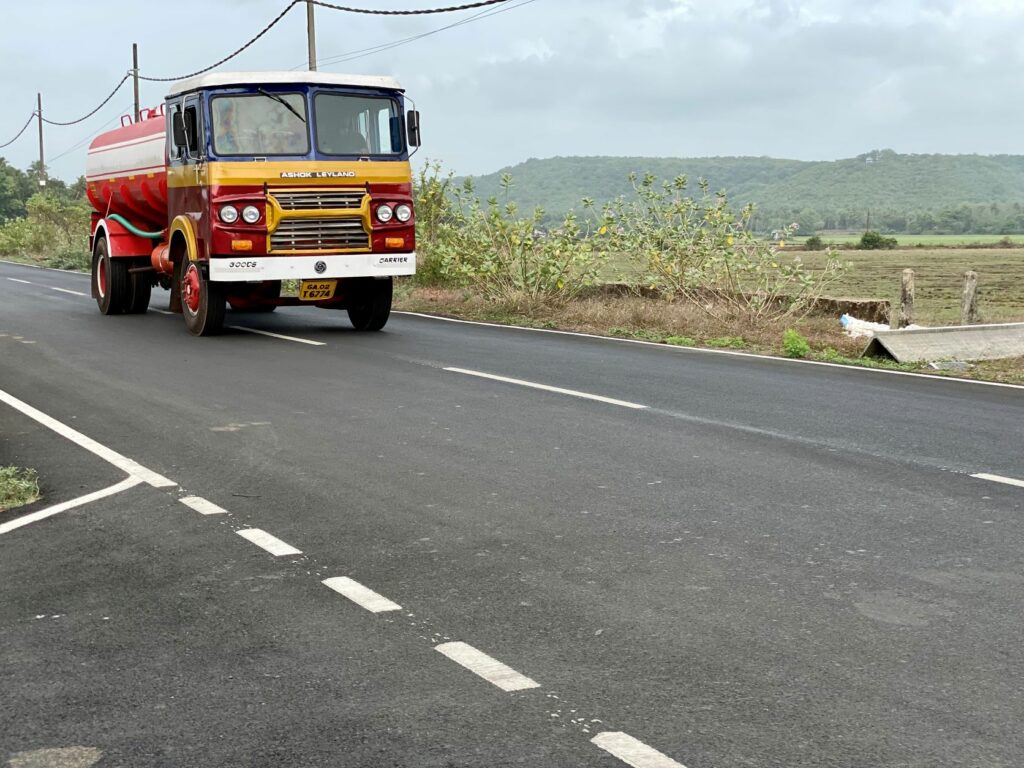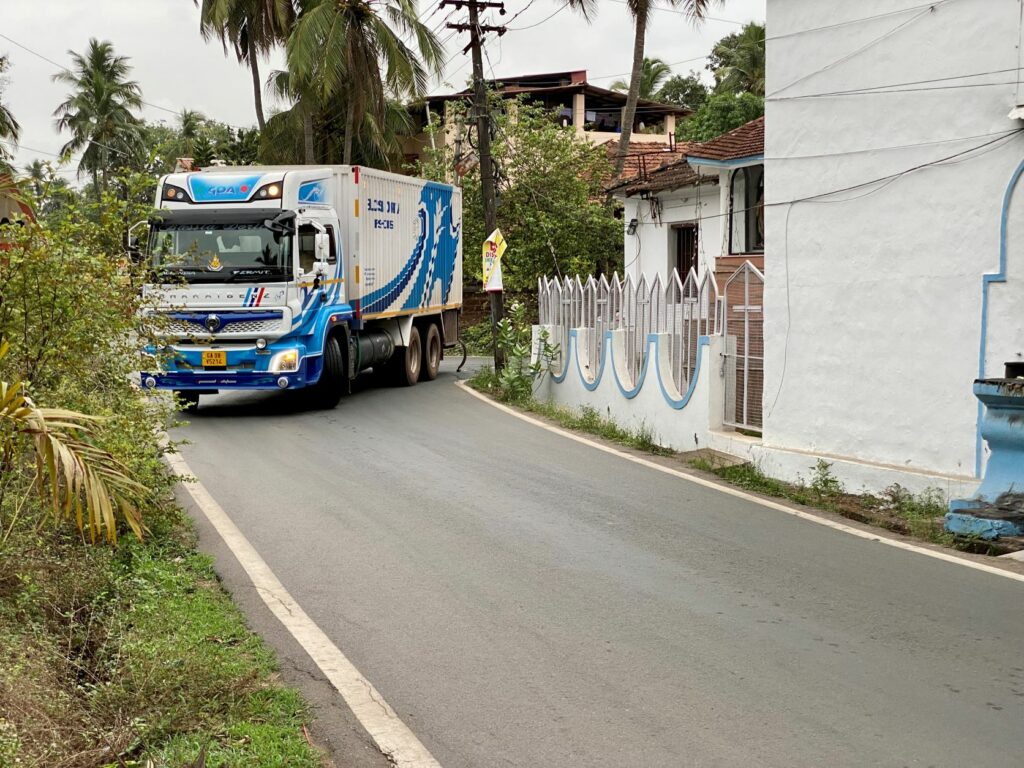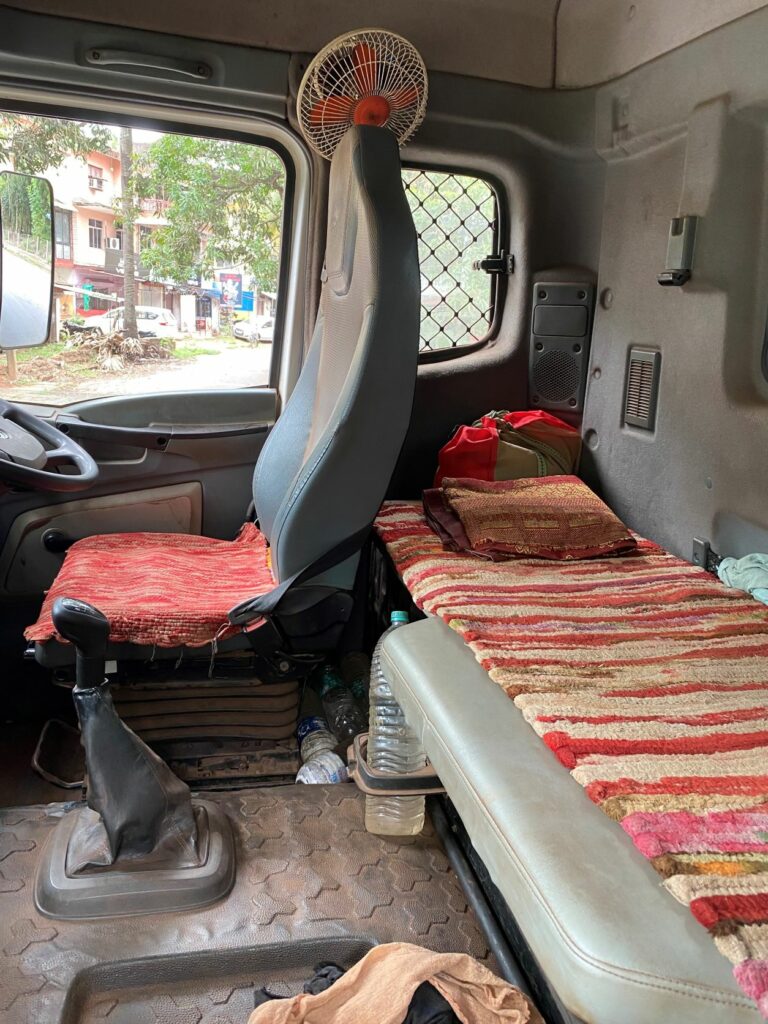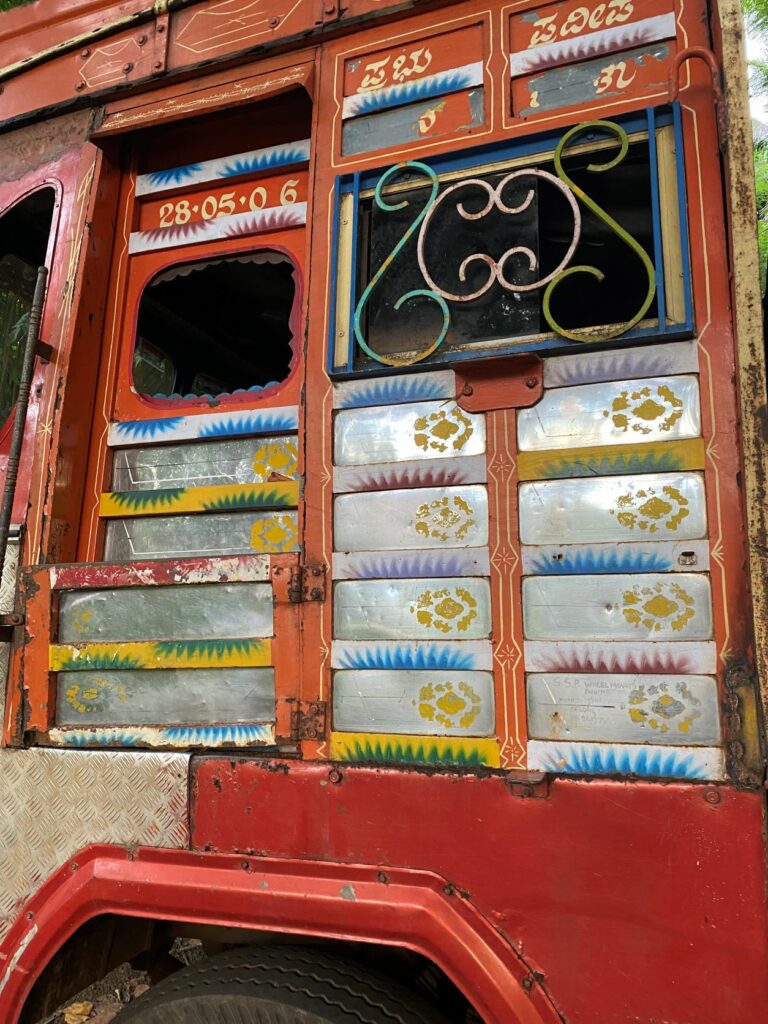Indian truckers roll on despite unique challenges
A question to North American drivers, have you worked while being accosted by law enforcement officials seeking bribes as you roll down the highway? Never, would be the likely answer.
This is not the case in India, where truckers I spoke to complained of being harassed by some officials halting them, and demanding payment to allow them to continue their trip.
Driving a commercial vehicle is a tough, lonely job, anywhere in the world. In North America, drivers face many problems. Long work hours, lack of parking, wait times that stretch out at shippers and receivers, and inconsiderate four-wheelers that cut them off, to name a few.

In India, there are additional challenges. Drivers also face abuse from other road users and the public. They have to constantly watch their back in case they get stopped and assaulted by irate and impatient drivers who are not shy to throw a punch or two.
If involved in a crash, the driver can be the target of an angry mob, whether at fault or not. Sometimes freight is looted after such incidents, as drivers fearing for their safety flee the scene.
Millions of trucks of all shapes and sizes traverse the vast Indian road network. These include new superhighways, narrow roads with oncoming traffic and twisty village streets that would challenge the most experienced driver.

The public is largely unaware of the issues truck drivers face and how the goods they purchase in stores and markets reach their destination.
For them, trucks are large and noisy nuisances they must deal with on shared roads. Some complain the drivers are rash, and for others they move too slowly.
Parking woes
Commercial vehicles, which sometimes haul 30 tons of freight, can only manage speeds of 30 km/h. These slow-moving vehicles are a target of anger for four-wheelers and two-wheelers amid chaotic traffic conditions, winding single-lane roads and crowded towns and cities.
Finding parking, especially in towns and cities is difficult. Freight is mostly loaded and unloaded manually, leading to longer wait times in busy areas.
Drivers sometimes park by the side of the road at night, while they rest. A trucker said he always worries about being robbed at night, as gangs target the cash and phones drivers carry.

Inside the trucks, driver comfort is not high on the priority list, and cabs are basic. A bunk behind the driver’s seat, sometimes topped with a thin mattress is where the trucker grabs sleep.
A tiny fan barely manages to circulate the hot air amid the sweltering summer heat and humidity that sticks like a wet blanket. Plastic bottles can be seen in the cab, refilled with drinking water when an opportunity arises.
Truckers stop at dhabas or roadside restaurants where they can grab a bite to eat along with a hot cup of sweet chai (tea). The washroom facilities at those places are basic at best. Some provide water for open-air showers and to wash clothes. Laundry is dried on a line strung in the truck cab.

A driver told me he earns about Rs20,000 to Rs25,000 ($330 to $414) a month. His biggest problems are harassment by police officials and heavy traffic. He did not want his picture taken, nor his name revealed.
He said the vehicle’s owner gives him a fixed amount of money before each trip for expenses, which includes bribes that must be paid. If he is squeezed out of additional cash, it comes from his pocket.
Pay up and pass
Other drivers had similar complaints. ‘Pay up and pass’ seems to be the mantra.
Another driver who did not want to be named, was traveling south from the port city of Vasco da Gama in the western state of Goa to Belagavi in the neighboring state of Karnataka. He said he would end up paying at least Rs500 (about $8) in bribes to policemen before he even reached the state border check post.
Yet, truckers continue to roll on, supplying goods to more than a billion people, who may not appreciate the effort and sacrifice it takes to get the job done.
They would certainly welcome a little more respect and a lot less harassment.
Have your say
This is a moderated forum. Comments will no longer be published unless they are accompanied by a first and last name and a verifiable email address. (Today's Trucking will not publish or share the email address.) Profane language and content deemed to be libelous, racist, or threatening in nature will not be published under any circumstances.
Part of the training when they come to Canada must be the difference in driving style and rules. Some large trucking companies like these drivers ax they will work for less money.